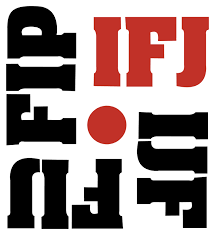Roma people are usually only given space in the media when it is either World Roma Day or through media coverage of government support programmes for the Roma community. Even then, the reporting remains purely factual, without a deeper analysis and a critical view on the position of the Roma in Serbia.
Media reports fail to draw attention to the discrimination against Roma people in Serbian society, although their reality is filled with prejudice, discrimination, but also physical and racist attacks.
Additionally, when reporting on the Roma, there is very little space for positive stories, even on the public broadcasting service, which is financed by all citizens of Serbia, thus including Roma people.
“When we talk about reporting on the Roma population, it is inevitable to mention that reporters are insufficiently informed about the current position of the Roma. Also, when Roma people participate in “positive stories”, that is, when they participate in joint programs and when they fight together with the citizens of Serbia for a better society, the media does not recognise that the participants are Roma. However, when a negative story is conveyed, for example a theft, then, even though that information is not relevant, it is emphasized that the perpetrator is Roma. “This creates prejudice”, says Mihajlo Jovanović, an activist from the Roma Association of Braničevo district and the author of the Youth for Youth podcast.
The media plays a role in creating the image that shapes public opinion. However, media workers are also citizens who live in a certain society and therefore adopt the dominant narrative of that society. Mainstream media reporters rarely question their standpoints, and therefore run the risk of reproducing deeply ingrained stereotypes. When we report on marginalized groups (in this case the Roma), we must be aware of their position in society, the prejudice, and the stereotypes that exist in society, but also in our attitudes. “Roma are good musicians” is also a stereotype about the Roma community. Although it is not negative and does not directly cause harm, it nevertheless creates generalization of all members of one group. Generalisation of any kind contributes to building negative attitudes towards the whole group based on individual examples. In this way, when media, for example, report on theft and mention that the perpetrator is Roma, we get a generalised, negative attitude about all representatives of that community. This is precisely why the Code of Journalistic Ethics forbids mentioning the ethnicity of perpetuators unless it is essential to the story. However, the Code is violated on a daily basis.
Due to ignorance and deeply ingrained stereotypes, journalists can create a negative image when reporting, even when their intention is good. Exactly for that reason, it is important to create space for genuine Roma voices, but not just to speak about issues related to the Roma community but also on different topics relevant for all citizens of the society we live in.
Jovanović pointed out that young Roma men and women are working towards a more inclusive society, breaking down walls of misunderstanding, as well as informing citizens about the position of the Roma through the regional conferences Decade of Roma Inclusion.
In the media, there is almost no critical analysis of the government support programs for the Roma community, and the reporting is initiated by pseudo-events that promote state policy on the Roma and government support for the Roma community.
The media has a long way to go to replace factual reporting with a critical analysis of the position of the Roma community in society, the effectiveness of the implementation of the state’s minority inclusion policies, as well as issues of discrimination and racism. There are examples of good practice, but it is time for the mainstream media, more generally, to become more inclusive and provide a platform for those who have been silent for too long.
Author: Ivana Jovanović
Article originaly published at mladi.org.rs








